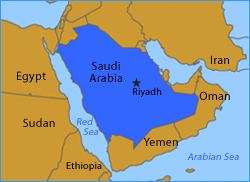The death of King Fahd in early August 2005 appears to have changed little in Saudi Arabian politics, as the new King Abdullah had been the de facto Saudi ruler since Fahd suffered a debilitating stroke in 1995. The smooth transition in leadership from one octogenarian to another may not bode well for Saudi women, who could be forgiven for not seeking change — they have absolutely no political rights. A recently released study by Freedom House, a nonprofit organization dedicated to expanding political and economic freedom, assessed 16 Middle Eastern countries (and the Palestinian Territories) on women’s rights; Saudi Arabia received the lowest ratings in every category. (On a scale of 1 to 5, with 5 as the high score, Saudi Arabia received 1.6 for Social and Cultural Rights, it’s highest score. For Political Rights and Civic Voice, Saudi Arabia received 1.0, the lowest rating possible.)
Certainly, some Saudi women — and many Saudi men — approve of their second-class citizenship, which many argue is consistent with Islamic ideals. Women may not drive or vote, and must dress modestly in public; behind closed doors, rape, domestic violence, and child abuse are often treated as private, not criminal, matters. Yet women are not entirely hidden from the public eye; they have access to higher education and some sectors of employment. The public and private intersected dramatically in April 2004, when popular TV presenter Rania al-Baz was nearly beaten to death by her then-husband. She allowed Saudi newspapers to publish the photos of her horrifically bruised and swollen face, breaking a taboo and inspiring public debate on domestic violence.



